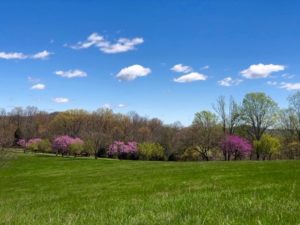
“Pay attention” is a frequently delivered command. Indeed, when we pay with our attention we deliver our energy to the object of our focus. Attention is a powerful energetic currency.
Notice, for instance, the impact on your personal energy when you tune into the news, or some form of social media. The impact can be either depleting or empowering. Either way, we spend our energy in our emotional reaction to the news. That expended energy is delivered, on a subtle level, to the person we are reacting to in the news.
Children, most dramatically, seek our attention. Child educators know that getting attention is the child’s goal, good or bad. Once the child has our attention, they thrive on the energy of our focus, as well as on our emotional reactions. Tantrums are energetic goldmines for the tantruming child.
Even inanimate objects can absorb our energy. A trip to a museum is a case in point. Though fascinating and educational, objects of art demand our attention and can deeply drain our energy. We could say that a sculpture at a museum is imbued with self-importance. Were it not so, it wouldn’t be on display. Be careful how much attention you give it!
Self-importance measures the quantity and quality of attention we are paid for being alive. The ego, as the orphaned ruler of the personality, seeks the attention of others to validate its worthiness. This extrinsic dependency is the consequence of the ego’s separation from its wholeness, at the time of birth into this world. A blank slate seeks the approval of others to find its worth.
Shamans have astutely addressed this energetic stalemate. The fragmentation from Spirit-self, that accompanies finite life in a physical world, has led to obsessive dependence upon the attention of others to replace one’s lost Spirit. This attention-seeking behavior is considered by shamans to be humankind’s greatest energy drain.
Shamans discovered that a shift in focus, like the social isolation the world is currently experiencing, can result in the accrual of vast sums of energy within the self. That energy, combined with the intent to reconnect to one’s Spirit, can result in a deeply healing, inner soul retrieval.
To be connected to the life of one’s Spirit is to become guided by omens, the synchronicities from infinity that guide and inform life; to be in the world but not of the world, at an attention-seeking level. Attention-seeking is then completely replaced by the pursuit of right action, the best decision to be made under the presenting circumstances.
To dance with omens is to feel constantly renewed by participation in a fuller life, one that includes one’s essence, at a cosmic level. Attention received is not attention sought, but it is attention provided to guide the way to right action.
Save the currency of your attention for that which truly guides you to your wholeness. This is the world we are morphing into, a world of interconnected oneness. Let’s attend to that!
Attending Spirit,
Chuck

